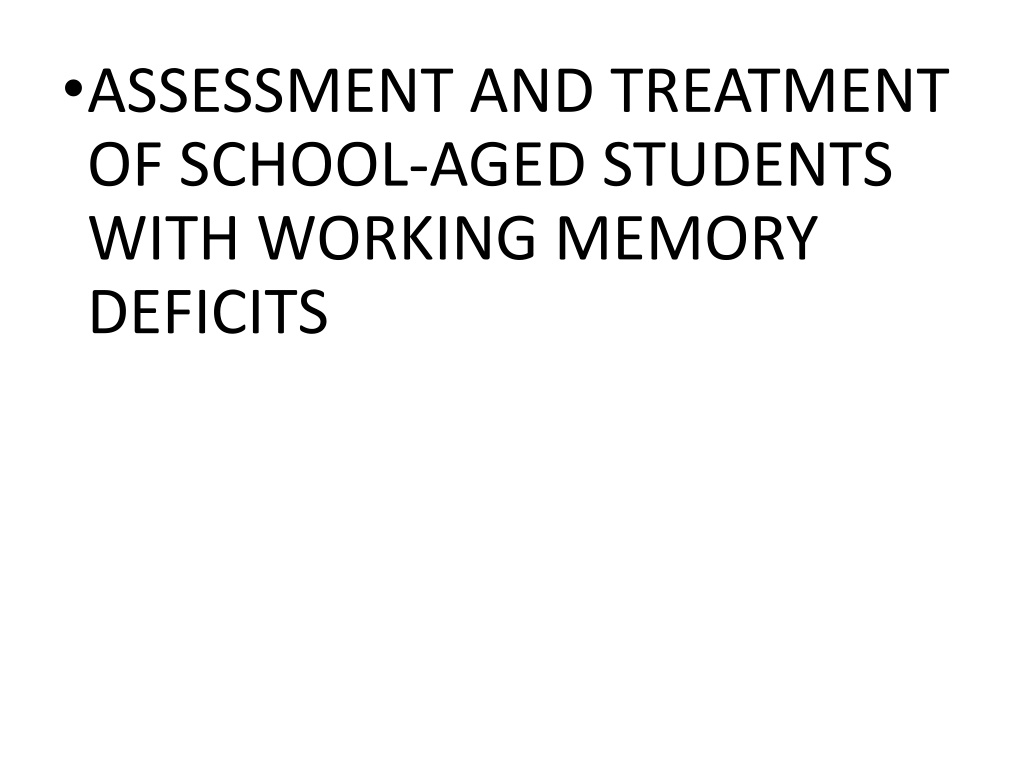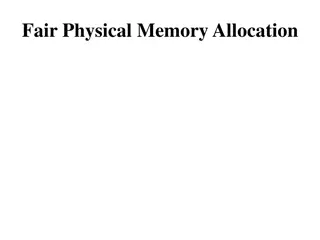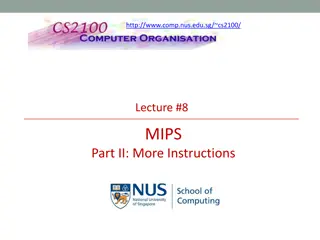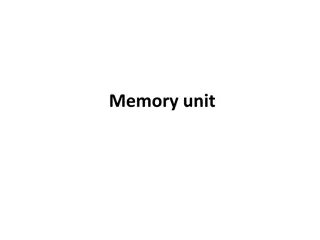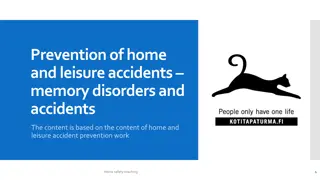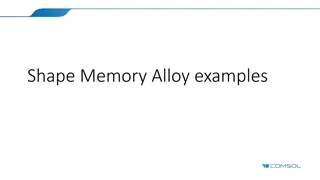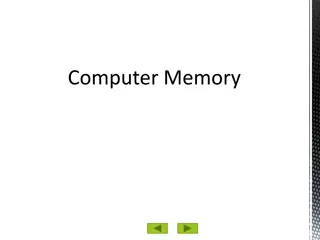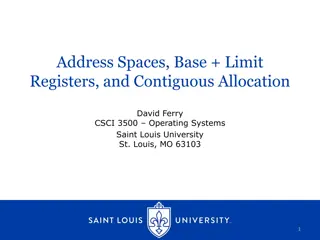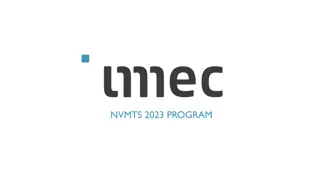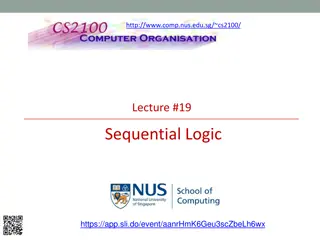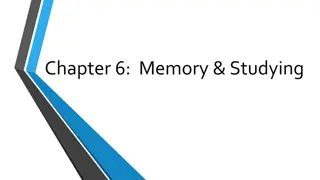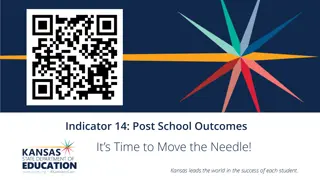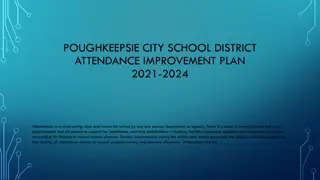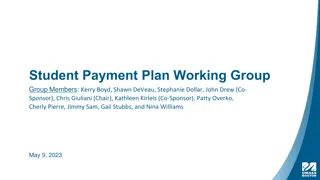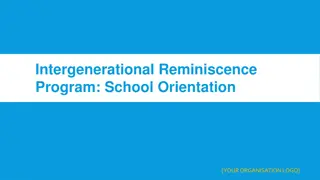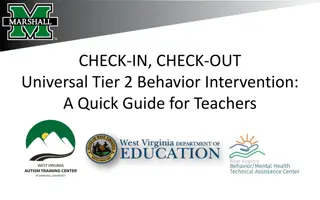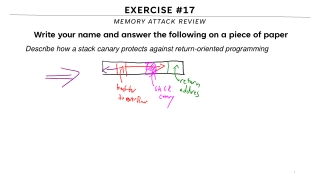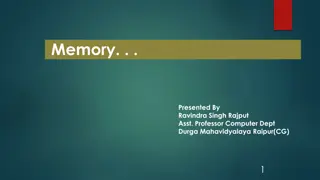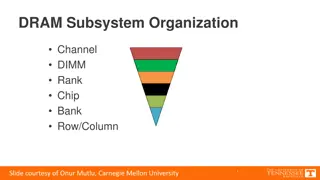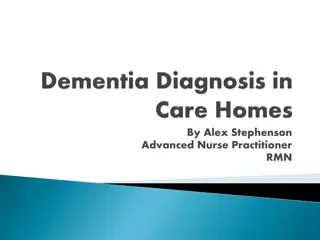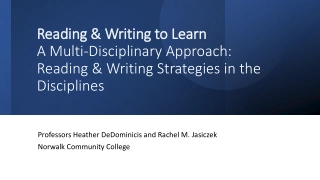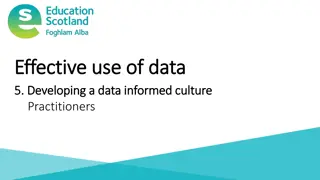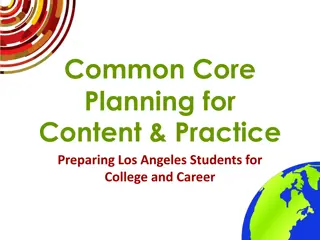Effective Strategies for Improving Working Memory in School-Aged Students
Recent research highlights the crucial relationship between working memory (WM) and language development in school-aged children. Assessing WM skills and implementing targeted interventions can significantly impact vocabulary acquisition, language comprehension, literacy skills, and academic success. Understanding the importance of WM in learning and memory formation is essential for educators and parents to support children's cognitive development effectively.
Download Presentation
Please find below an Image/Link to download the presentation.
The content on the website is provided AS IS for your information and personal use only. It may not be sold, licensed, or shared on other websites without obtaining consent from the author. Download presentation by click this link. If you encounter any issues during the download, it is possible that the publisher has removed the file from their server.
Presentation Transcript
ASSESSMENT AND TREATMENT OF SCHOOL-AGED STUDENTS WITH WORKING MEMORY DEFICITS
Power Point Outline** I. Introduction II. Types of Memory III. Assessment of WM Skills IV. Intervention for Deficits in memory Skills V. New Techniques for Targeting Phonological Awareness
I. Introduction** Recent research: strong relationship between working memory (WM) and language development WM affects the rate at which children learn new vocabulary, comprehend language, acquire literacy skills, and gain academic knowledge
Gray et al. (2022). Working memory predicts new word learning over and above existing vocabulary and nonverbal IQ. Journal of Speech, Language,and Hearing Research 65 (3), 1044-1069** Subjects: 167 English-speaking 7-8 year olds who were typically developing The subjects completed a battery of assessments of working memory (WM)
Gray et al. 2022 found: WM is a significant predictor of word learning WM is more important to word learning than expressive vocabulary and IQ
Childrens WM skills when they enter school Predict their overall academic attainment through adolescence
Research out of Princeton 2021: https://www.princeton.edu/news/2021/03/31/attention-and- working-memory-two-sides-same-neural-coin Found that attention and working memory share the same neural mechanisms Important: If a ch can t focus, won t remember input
Fogle, 2022:** When you walk across the grass once, it springs back quickly; there s no trace of your steps When you walk across it many times, a path emerges That s how we build neural pathways and memories
Morrow, E.L., & Duff, M.C. (2020). Sleep supports memory and learning: Implications for clinical practice in speech-language pathology. American Journal of Speech-Language Pathology, 29, 577-585. ** Sleep disturbances affect quality of tx for clients Poor sleep quality affects memory and learning, especially long-term memory SLPs: educate caregivers about poor sleep and its short- and long-term negative impact on memory and learning
II. Types of Memory** Montgomery et al. (2021, April). A new memory perspective on the sentence comprehension deficits of school-age children with developmental language disorder: Implications for theory, assessment, and intervention. Language, Speech, and Hearing Services in Schools, 52, 449-456.
Remember the primacy and recency effects:** We best remember what came first and what came last
Working memory:** Temporary memory used in information processing WM is information that is in an active or accessible state and is used to complete some form of mental activity
I picture working memory like driving while you are listening to Siri after having looked at a map** 1. Look at the google map and get the visual 2. Drive and listen to Siri tell you what to do while retaining the visual google map in your head
Archibald, L.M.D. (2018). The reciprocal influences of working memory and linguistic knowledge on language performance: Considerations for the assessment of children with Developmental Language Disorder. Language, Speech, and Hearing Services in Schools, 49, 424-433.**
Archibald, 2018to relate WM to the classroom setting, assess the child s abilities in:
Archibald 2018assess the childs ability to retain words in mind while identifying common features** Listen: banana, strawberry, apple. All of these are _______ Jupiter, Mars, Earth, Venus. All of these are______
Archibald, 2018CELF-5 subtests that address working memory as well as language:
IV. Intervention for Deficits in Memory Skills** A. Modify the Environment to Reduce Demands on WM Repeat info, have visuals, slow down .what else? Lists of required tasks, stop and have child summarize
B. Direct Memory Intervention Techniques
There are some computerized programs:** CogMed Working Memory Training Fast ForWord Language
Some current researchers are recommending:
One study:** (cited in book) Training 15 minutes a day 4 days a week over 7 months for Greek-speaking preschool children Practiced diligently on repeating nonwords Reading and WMs really improved
Roseberrys Recommendation:** Order Simon Trickster app for your iPad Let the child play it as a reward
https://www.youtube.com/watch ?v=NudoGrbvJHM Supersized Simon Swipe at KID group studio Youtube video You can get the app or a much smaller game+
There are various ways to encode more deeply elaborative encoding:** 1. Visualization; if you exaggerate the picture with color and movement, better 2. Reauditorization (repeating things out loud) builds a phonological representation 3. Writing things down
An example: telepractice It s good for clients in remote areas How do I use it successfully with kids in tx? With children, it s mostly about cooperative caregivers
Creating novelty--here is an example of how to engage these ideas to memorize spelling words:** Day 1: Read words in meaningful sentences Day 2: Break words into chunks using magnetic letters Day 3: Spell words aloud into your phone using an animated, interesting voice. Play the recording back as you look at the words. Make a picture of each word in your brain, exaggerating its characteristics.
Day 4: Write words using different media**chalk, pencil, crayon, tracing in sand Day 5: Write each word 10x with a pen/pencil. Go over words with a friend, quiz each other
Introduce emotion** Tell stories that elicit positive or negative emotions in the listener Children will remember info better!
Use brain gym exercises to cross midline this enhances concentration
Singer, B.D., & Bashir, A. (2018, July) Language, Speech, and Hearing Services in Schools, 49, 449-462** Our field is really beginning to question the use of computer programs that build memory The very most current thinking is that use of decontextualized, computer-based treatment approaches to increase the verbal working memory capacity of children with SLI are not likely to transfer to authentic learning contexts
Singer & Bashir continued:** Students represent their thoughts visually with a visual schema or frame that develops over time as they actively process the information
Larson, C., & Weismer, S.E. (2022). Working memory performance in children with Developmental Language Disorder: The Role of domain. Journal of Speech, Language, and Hearing Research, 65, 1906-1920.** Examined role of WM in 9-13 year old children with DLD Subjects in this study with DLD performed worse on WM tasks than typically-developing Ss
V. New Techniques for Targeting Phonological Awareness** Much recent research also ties memory to phonological awareness We will build on your prior knowledge of PA with some new research and hands-on activities
Spoonerisms are very helpful in building phonological awareness skills:
Practice changing these sentences into spoonerisms:** I love teaching this class. I tove leaching clis thass. It is fun to study child language. I am working to become a speech-language pathologist. The holidays are coming soon.
